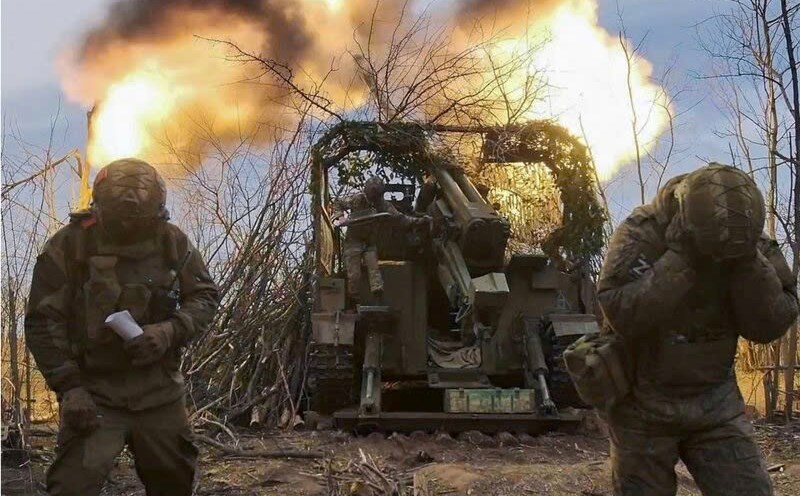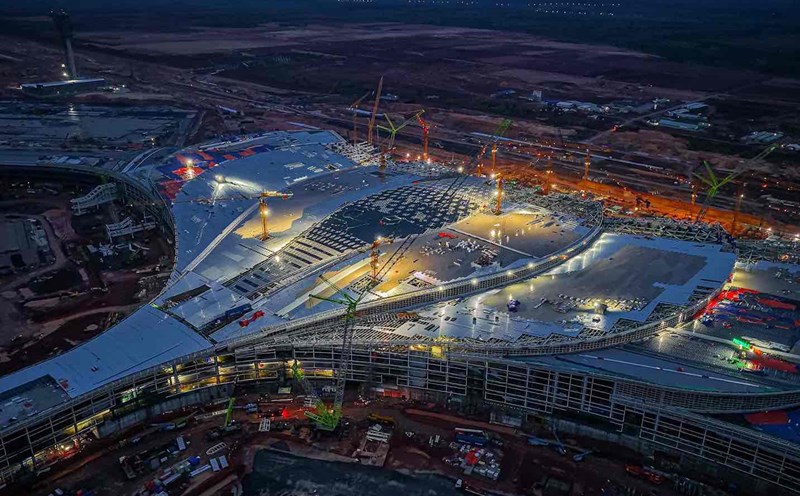Article 9 of the Constitution clearly states: The Vietnam Fatherland Front is part of the political system of the Socialist Republic of Vietnam, led by the Communist Party of Vietnam; is the political basis of the people's government; gathers and promotes the strength of national solidarity; demonstrates the will, aspirations and promotes the mastery of the people; represents and protects the legitimate and legal rights and interests of the people; implements democracy, strengthens social consensus; supervises and criticizes society; reflects the opinions and recommendations of the people to state agencies; participates in building the Party and State, people's foreign affairs activities, contributes to building and defending the Fatherland. This affirms the great role of the Party in gathering and leading the masses throughout the nearly 100 years of the revolution.
laying the foundation from the 1930 Political Cube
In February 1930 the Communist Party of Vietnam was born. Right in the "Smarized Charter, Summary Strategy", the Party has outlined the requirement to gather forces and build the great national unity bloc. Right from the Summary Principle and Summary Strategy adopted at the Conference on the founding of the Communist Party of Vietnam chaired by leader Nguyen Ai Quoc, it was outlined the need to build a unified National Front to unite all classes in society, political organizations, individuals to promote the tradition of patriotism, the strength of all factors of the nation to strive for the common cause of national liberation.
In October 1930), based on a scientific analysis of the world and Indochina situation, especially the Xo Viet Nghe Tinh movement (the peak was in September 1930), the political luan was born, clearly stating the nature of the revolution in Indochina as the capitalist revolution.
"In the capitalist revolution, classlessness and farmers are the two main driving forces, but only with a ruling class can the revolution be victorious if it is not productive" - Luan Cuoc stated. The political platform affirmed that the Indochina revolution must have a strong Communist Party to lead.
The essential condition for the victory of the revolution in Indochina is the need for a Communist Party with a correct guiding line, with discipline to closely focus on communication with the masses and to strive to mature. At the same time, the article also clearly states: To win the Party, the masses of workers must be won by organizing revolutionary unions such as the Party Committee, the Farmers' Union, etc.
This awareness paves the way for the formation of a unified national front - where the strength of the entire people gathers.
Therefore, at the first Central Conference (10.1930) many important documents were discussed and approved, including the An Resolution on the issue of anti-imperialism. The Resolution affirms: Indochina has many anti-imperial forces, and needs to unite into a unified revolutionary movement to overthrow the socialist empire. This is the first sketch for the principle of building a unified ethnic Front.
The birth of the anti-imperialist alliance - the predecessor organization of the Fatherland Front
From those strategic decisions, just over a month later, on November 18, 1930 the Central Party Standing Committee issued a Directive to establish the Anti-imperial Association of the Allies. The Directive was directly signed by General Secretary Tran Phu, marking a remarkable development in the Party's awareness and organization of the Front work. Later, November 18 every year was chosen as the Traditional Day of the Fatherland Front.
The anti-imperialist alliance of the alliance aims to gather public forces - farmers, youth, women, students, soldiers and some other revolutionary parties, including those from the property class but with patriotism. The Association's Charter clearly states: Unite all anti-imperial forces to overthrow the empire, gain complete independence for Indochina, and at the same time defend the liberation movement in the colonies.
In the context of harsh enemy terrorism and limited means of transportation, calling up and organizing a unified front is extremely difficult. However, thanks to the creative direction of the Party, the Anti-imperialists Association of the alliance was born, becoming the first political organization to widely gather all classes of patriots, paving the way for the development of future forms of the front.
Without the Political Circular and the Resolution against the Emperor, there would be no theoretical basis for the establishment of an Allied Anti-imperial Association. The Party has clearly identified the main enemy, and at the same time, outlined a path to gather forces, differentiate classes, and bring the revolutionary movement into a unified path.
Notably, from the beginning, the work of the Front was not a spontaneous activity but was part of the overall strategy of the Party. General Secretary Tran Phu and the Central Executive Committee directly prepared and issued the Directive to establish the Association.
The anti-imperialist and alliance association not only calls for solidarity but also sets out a specific action program: Participate in the daily struggle of the working class and farmers, organize public propaganda among the masses. This is a connection between strategic goals and practical actions, thanks to which the revolutionary movement has a wide influence.
The birth of the Anti- trope Society of the allies opened a new phase for the Vietnamese revolutionary movement. Although there are still many limitations - such as the scope of the gathering not being really large, not strongly mentioning the common patriotic element of the entire people - the Association has laid the first brick for the house of great national unity.
The event of the establishment of the Anti- trope Union of alliances has special significance, affirming the Party's strategic vision with a deep awareness of the revolutionary power originating from the great national unity bloc. At the same time, the establishment of the Anti- trope Union for the Allies was a premise for the emergence of forms of the Front such as the Indochina Democratic Front (1936), the Viet Minh Front (1941), the Viet Viet Minh Front (1946), the Vietnam Fatherland Front (1995) and especially created a premise for the great national unity bloc.











